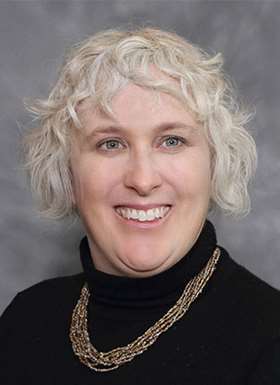Medical College of Wisconsin Clinical Health Psychology Post-Doctoral Fellowship
The Clinical Health Psychology Post-Doctoral Fellowships program aims to train competent, independently practicing Clinical Health Psychologists who will be well prepared to pursue a Clinical Health Psychology career in a hospital, healthcare setting, or academic medical center and to pursue board certification in Health Psychology. The program offers two fellow positions per year. Each fellow trains in two of the six major rotations available.
Although a formal post-doctoral fellowship is not a requirement of licensure in Wisconsin (please see Psychology Licensing Requirements in Wisconsin, “455.04 Licensure of Psychologists”), the Clinical Health Psychology Post-Doctoral Fellowship Program meets and exceeds the requirements needed for licensure in Wisconsin by offering non-internship, post-doctoral hours for licensure and EPPP support.
Learn more about the Program (PDF)View the Clinical Health Psychology Policy and Procedure Manual (PDF)
Clinical Rotations: Clinical Health Psychology Fellowship
Didactics and Supervision
Fellows will spend the bulk of their time in a specialized clinical area (8 half days per week; 2 hours individual supervision also completed within this time), with time set aside for didactics (4 hours per week) and a Scholarly Inquiry Project (4 hours per week).
Each fellow will work with two different major supervisors, receiving two hours of individual supervision per week. The nature of the supervision will be direct observation, case review/discussion, and at times co-treatment with a supervisor (e.g., seeing patients together in a primary care setting). Supervision at each rotation will begin with direct observation and will evolve into case review and discussion as the fellow demonstrates greater levels of development across competencies.
EPPP Support
- Access to the library of EPPP study materials including AATBS study workbooks and flashcards
- Professional development fund of $1500 that can be used for online test materials, EPPP fees, and licensing fees
- Up to 3 professional days allowed for EPPP study
- EPPP Office Hours and Support (Scheduled Meetings as Needed)
Meet the Director | Heidi F. Christianson, PhD, MS
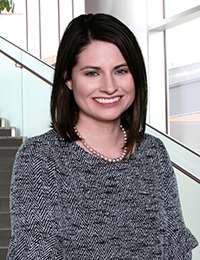 Dr. Christianson completed her undergraduate and master’s degrees at the University of Wisconsin-Madison and her doctorate at the University of Wisconsin-Milwaukee.
Dr. Christianson completed her undergraduate and master’s degrees at the University of Wisconsin-Madison and her doctorate at the University of Wisconsin-Milwaukee.
Dr. Christianson provides psychological services including assessment, psychotherapy, and consultation at the Froedtert & the Medical College of Wisconsin Clinical Cancer Center. Dr. Christianson works with the Blood and Marrow Transplant Program performing pre-BMT evaluations and follow-up psychological care as patients cope with the resultant behavioral and health restrictions associated with the bone marrow transplant process. She also helps patients address adjustment to illness, psychological disorders co-existing with cancer diagnosis, complicated patient and/or family situations, and maladaptive behavioral coping strategies. In addition to direct patient care, Dr. Christianson collaborates with the Froedtert Grace Clinic Staff on early screening and intervention for psychological distress and quality of life throughout the cancer treatment process.
Application Process
Qualified applicants will have graduated from an APA-accredited graduate program in clinical or counseling psychology. Applicants must have doctoral degree conferred prior to the start of the Clinical Health Psychology Fellowship Program. Froedtert & the Medical College of Wisconsin encourages applicants from under-represented minority groups, women, and those with disabilities to apply.
Interviews will be conducted via a video platform. Applicants who do not meet required qualifications will not be considered for an interview and will be provided with proper notice. Interviews will be offered to applicants based on meeting qualifications and being identified as a good fit for the Fellowship. Notification of interview status will be given no later than January 1.
The application rolling deadline is December 15.
Please submit any questions to Sarah Hansen, shansen@mcw.edu.
View the Postdoctoral Fellowship Admissions, Support, and Initial Placement Data (PDF)
Stipend, Benefits and Accreditation Information
Stipend
The current annual stipend is $62,000.
Benefits
View benefit information on the MCW Human Resources website.
APPIC Membership
The Clinical Health Psychology Fellowship is an APPIC Member Program (9035) and will abide by the APPIC Common Hold Date.
Accreditation Statement
Non-accredited. Questions related to the program’s accredited status should be directed to the Commission on Accreditations:
Office of Program Consultation and Accreditations
American Psychology Association
750 1st Street, NE, Washington DC 20002
(202) 336-5973 | apaacred@apa.org | APA Website
Core Faculty

Heidi F. Christianson, PhD, MS
Associate Professor

Alexander Buhk, PhD
Assistant Professor
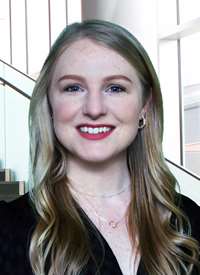
Amber Craig, PhD
Assistant Professor
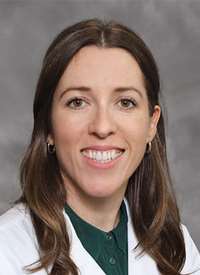
Mackenzie T. Goertz, PhD
Assistant Professor

Lawrence A. Miller, PsyD
Associate Professor

Jenessa Price, PhD
Associate Professor

Kirti Thummala, PhD
Assistant Professor

Lyndsey Wallace, PsyD, ABPP
Associate Professor

Stephanie Chadsey Zanowski, PhD
Director, Associate Professor
Fellows
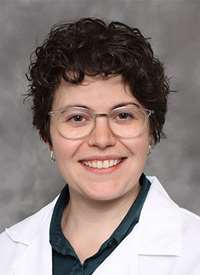
Julia Cameron, PhD
Fellow

Emma McWhorter, PhD
Fellow
Program Alumni
- Amy Fraire, PhD
- Divya Bhagavatula, PsyD
- Alex Buhk, PhD
- Amber Craig, PhD
- Adam Everson, PhD
- Michelle Lee, PsyD
- Matthew Reiland, PhD
- Alexandra K. Stalboerger, PsyD
Contact Us
Psychiatry and Behavioral Medicine | Research Park Center | 10000 W. Innovation Drive, Third Floor | Milwaukee, WI 53226
